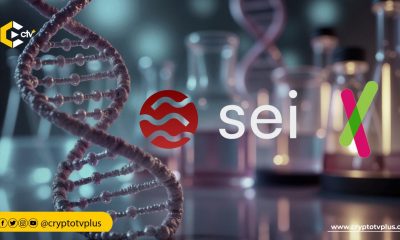News
Why The Fuss About Blockchain Technology?

One of the constant thing in life generally is change, and the ability to change have always been the top most priority of our evolution as humans. There are almost infinite factors that contribute to these changes in our civilized world. Whether we like to admit it or not, blockchain technology is of importance towards achieving this change.
Innovations like the AI and IOT are on people’s lips nowadays. Not just that, there’s a tendency that everyone has a device that uses one, if not both of these technologies in their vicinity.
For couple of years now, Cryptocurrency and the Blockchain technology has really captured part of the spotlight. There is argument by some people that cryptocurrency – Bitcoin to be specific is the most important invention of the century. However, if cryptocurrencies were to vanish into thin air tomorrow (hypothetically speaking), there is still something to fall back on and that is the Blockchain technology.
The Blockchain technology is such an awesome technology filled with intricacies and has been disrupting our traditional business models and there are still some unaware aspect to many of us. In simple words, Blockchain is a virtual, public ledger of information collected through a network that sits on the internet. It is how this information is recorded that gives the Blockchain its groundbreaking potential which enables cryptocurrencies decentralized.
A Dive into the Importance of Blockchain
One of the most important benefits Blockchain offers is that it facilitates consensus within a trustless community through a smart incentive system, a number of people with no reason to trust each other can reach an agreement over something that can be said to be true before it is added to the chain. Once the data is recorded in a block it cannot be altered without having to change every block that came after it, making it difficult to do so without it being seen by the other participants on the network.
The ledger is copied across the network of validators using cryptography tech. This means that even if a hack would be possible in theory, in practice, it’s almost impossible.
Blockchain technology improves existing database technology and it’s quite cost effective and more secure. It has the potential to usher in a new, fairer world, spanning finance, governance, supply chain management and much more.
Blockchain greatly improves over our existing database technology as it’s more efficient, more cost-effective, and more secure. Of course, it has to be said that traditional databases have clear advantages over the Blockchain in terms of performance. However, their biggest setback is the fact that they are centralized, with the management of data placed in the hands of just a few entities.
Till date, there are four types of Blockchain which are permissioned Blockchains, permissionless Blockchains, public permissioned Blockchains, and private permissioned Blockchains. Both Bitcoin and Ethereum are permissionless Blockchain; that is anyone can start mining and operate as full node. But it is not so in the case of permissioned Blockchain, there is need for authorization and only a number of limited users are authorized to join.
Public permissioned Blockchains are simply permissioned Blockchains, however the data is available for public view. Contrast to private permissioned Blockchains, data is restricted from public view in this case.
Smart contract – Smart contracts are agreement written in code and embedded onto a particular Blockchain. The code contains set of rules, conditions, expiry dates and other relevant information needed which self-execute if the conditions are met. One part of Blockchain technology which not only increases a number of Blockchain use cases, but also the ability to disrupting a variety of industries and non-profit causes is the invention of smart contracts.
Practical benefit of Blockchain and how it works
Blockchain provides business with transparency, improved trace-ability, enhanced security, increased speed and efficiency and it is cost effective.
Since the Blockchain is a distributed ledger, all participant on the network share the same view and data. Each block contains the data it is recording, for example a transaction like 1 kurecoin being sent from Benjamin to Israel, as well as timestamps of when that information was recorded, also it will include a digital signature linked to the account that made the recording and a unique identifying link, in the form of a hash (one can think of it as digital fingerprint), to the previous block in the chain.
Furthermore, data on the Blockchain is accurate and transparent, after a transaction is approved, it is encrypted and linked to the previous transaction, it is this link that makes it impossible for any of the information to be altered or for a block to be inserted between two existing blocks. The data shared can be updated through a consensus which means that it must be agreed and accepted by everyone on it. This is what makes the Blockchain perfect for industries such as financial sector, health sectors, and even government data management.
Industries being disrupted by the Blockchain
The Blockchain is popularly known to have been designed to enhance and disrupt the financial sector which is in the aspect of cryptocurrency, however it is important to remember that this payment method is only the tip of the iceberg in current Blockchain use cases. Below are some listed ones;
Decentralized Government
As said before, one of the most fascinating aspects of Blockchain is how they allow consensus to be reached which makes it difficult for any information to be altered without the participant on the network not seeing it. When it comes to voting, it all comes down to trust. In the future, we might very well see Blockchain technology powering national or local elections. Blockchain has the potential to significantly diminish electoral fraud, manipulations, violence as seen in some part of the world.
Blockchain In Banking
Banking is one industry that is very prone to human error. With the help of Blockchains, recording transactions would virtually eliminate this problem. Also, Blockchains guarantee a high accuracy for records and provides a highly traceable audit trail. Accepting Blockchain technology in banking and the broader financial system could improve the industry by paving the way for a much more responsive and flexible infrastructure.
Blockchain In Supply Chain Management
Blockchain technology offers trace-ability and cost-effectiveness, thanks to its unique features, Blockchains can easily track the movement of goods from their origin to the middle and finally to the final consumer for a supply chain management.
Blockchain In Health Care
Transitioning to a Blockchain healthcare system would cut costs and improve security of health data. When it comes to Blockchain the future of healthcare will be all about efficient data processing and sharing, enhance opportunity for analyzing medical trends and assessing high quality of care.
The Blockchain healthcare use case increases even more if a smart contracts is considered. For instance, an individual patient could interact with a specific Blockchain healthcare platform in order to easily view all of their claims, transactions, as well as medical history. Alternatively, the Blockchain can be used in order to apply for transfers or schedule appointments with their immediate medical staff, which are activated by smart contracts as soon as payment is processed and doctor confirms availability.
In conclusion, the Blockchain technology has a lot of use cases, a lot more than it can be covered in this article. There are still a lot of development and research to be done. The technology is still in its infant stage until it reaches its maturity, it will change the way we live our lives.
What is your take on the Blockchain Technology? Do you think it will really change the way we live our lives? Share your thoughts with us in the comment section.
Picture Credit: Synergyaustralia.com
Disclaimer:
The Information provided on the website is designed to provide helpful information regarding cryptocurrency subjects. The content is not meant to be used, nor should it be used as a basis, foundational knowledge or prerequisite for decision making regards trading. Always do your own research and due diligence before placing a trade. We are not liable for any outcome based on any content found on the site.

























Pingback: The Power of Zero-Knowledge Proofs in Blockchain-based Voting System - Cryptotimes Africa